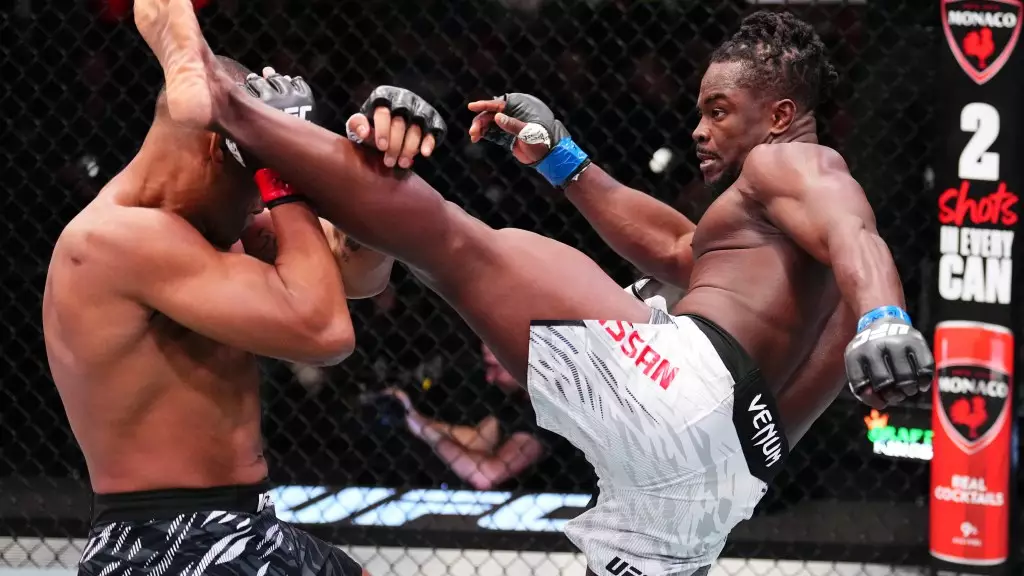Abdul Razak Alhassan recently experienced a harrowing setback at UFC Fight Night 249, where he faced off against César Almeida. The match took a dramatic turn when Alhassan, after a flurry of strikes that seemed to promise success, was unexpectedly caught with a powerful punch that rendered him unconscious. This moment has stirred discussions among fans and analysts alike, with many labeling the knockout as a candidate for Knockout of the Year, despite the event occurring early in the calendar year.
Alhassan’s defeat is significant not only for the fight itself but also for the implications it carries for the fighter’s career trajectory. The 39-year-old has a long tenure with the UFC, yet this latest knockout loss marks a troubling streak, as it was his third consecutive defeat. This loss raises questions about Alhassan’s fighting strategy, readiness, and perhaps even his future in the sport.
As Alhassan exited the octagon, it was evident that the impact of the knockout resonated deeply with him. Despite his condition, Alhassan managed to leave the cage under his own power, although he was visibly shaken and unable to sit up without assistance shortly after the match ended. The fight’s aftermath saw Alhassan express his emotions candidly via social media, where he acknowledged his mistakes—specifically his eagerness to engage more aggressively, which ultimately led to his downfall.
His heartfelt apology to fans revealed a sense of accountability that is often commendable in athletes. “I got greedy and went for it and got caught,” he lamented, a statement that resonates with many fighters who have faced the consequences of a moment’s recklessness in high-stakes situations.
With a record of 12-7 in MMA and 6-7 in UFC, Alhassan’s fighting career hangs in a delicate balance. The fact that eight of his 14 UFC bouts have resulted in knockouts—many in his favor—showcases his potential and power. Nonetheless, the recent string of losses might pose serious challenges for his prospects in the promotion. Reflecting on his performance, questions about whether he can refine his approach or if he needs to reevaluate his standing in the ultrahigh-contact sport loom large.
The MMA community often witnesses fighters emerge from bouts like this with renewed focus and strategy. Whether Alhassan can overcome this setback and return to his former glory remains to be seen. As he recovers—both physically and mentally—his next steps will undoubtedly be scrutinized, as fans and analysts alike keep a close watch on his journey in the competitive world of mixed martial arts.
Alhassan’s situation also

